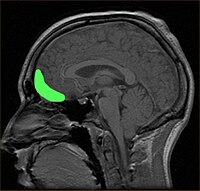
The association between self-report and behavioural measure of attentional control: Evidence of no relationship between ACS scores and antisaccade performance
Sign Up to like & getrecommendations! Published in 2022 at "Personality and Individual Differences"
DOI: 10.1016/j.paid.2021.111168
Abstract: Abstract Attentional control theory proposes a relationship between poor attentional control and heightened anxiety vulnerability. While attentional control is often assessed via self-report, it is unclear to what extent self-report measures indicate attentional control abilities.… read more here.
Keywords: antisaccade performance; self report; control; attentional control ... See more keywords

Neural modeling of antisaccade performance of healthy controls and early Huntington's disease patients.
Sign Up to like & getrecommendations! Published in 2021 at "Chaos"
DOI: 10.1063/5.0021584
Abstract: Huntington's disease (HD), a genetically determined neurodegenerative disease, is positively correlated with eye movement abnormalities in decision making. The antisaccade conflict paradigm has been widely used to study response inhibition in eye movements, and reliable… read more here.
Keywords: healthy controls; huntington disease; disease; performance healthy ... See more keywords

The influence of pubertal maturation on antisaccade performance.
Sign Up to like & getrecommendations! Published in 2018 at "Developmental science"
DOI: 10.1111/desc.12568
Abstract: Adolescence is a period characterized by continued improvements in inhibitory control, and this persisting immaturity is believed to interact with affective/motivational behavior to generate the impulsive and risk-taking behavior evidenced at this time. Puberty is… read more here.
Keywords: pubertal maturation; age; inhibitory control; maturation ... See more keywords